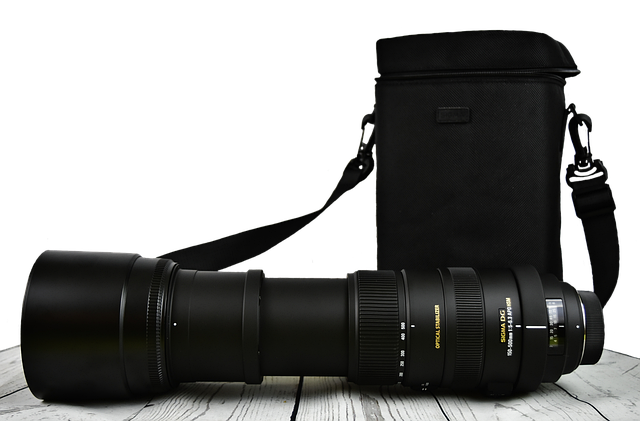six sigma and lean Six Sigma have become integral to strategic data management within project frameworks in Eagan, MN. These methodologies emphasize a data-driven approach for enhancing processes, reducing waste, and promoting operational efficiency through Six Sigma certification programs. These certifications equip professionals with the necessary skills to apply Six Sigma techniques across various project variables effectively. The training covers the full spectrum of Six Sigma, including the DMAIC framework, design of experiments (DOE), and advanced statistical tools like control charts and hypothesis testing. Aimed at process optimization, the Six Sigma Black Belt methodology is a pivotal tool for ensuring accuracy and precision in data analysis, leading to improved decision-making processes and a culture of continuous improvement. By embracing these principles, organizations in Eagan can significantly enhance their operational performance through systematic data collection, cost savings, and quality outcomes. Six Sigma Black Belt certification signifies mastery over these methodologies, positioning holders as strategic leaders capable of driving process efficiencies and achieving tangible financial benefits for their organizations.
In the bustling business landscape of Eagan, MN, data collection stands as a cornerstone for project success. This article delves into the mastery of data collection, leveraging Six Sigma and Lean Six Sigma techniques to refine efficiency in local projects. We will explore the intricacies of Six Sigma methodology, the pathways to certification, and the advanced strategies employed by Six Sigma Black Belts. Whether you’re a project manager or an aspiring data collection specialist, understanding the what is Six Sigma and its application through lean Six Sigma principles is key to navigating the complexities of modern project management. Join us as we unravel the layers of Six Sigma training and pave the way for enhanced data acquisition in Eagan, MN.
- Mastering Data Collection for Six Sigma Projects in Eagan, MN: Techniques and Tools for Enhanced Efficiency
- Harnessing Lean Six Sigma Principles to Streamline Data Acquisition in Eagan, Minnesota Projects
- Navigating Six Sigma Certification Pathways: A Guide for Aspiring Data Collection Specialists in Eagan, MN
- Understanding What Is Six Sigma: Data Collection Techniques Rooted in Six Sigma Methodology
- The Journey to Six Sigma Black Belt: Advanced Training and Data Collection Strategies in Lean Six Sigma
Mastering Data Collection for Six Sigma Projects in Eagan, MN: Techniques and Tools for Enhanced Efficiency

In Eagan, MN, the implementation of Six Sigma methodologies within project frameworks necessitates a meticulous and strategic approach to data collection. Six Sigma, a disciplined, data-driven approach to process improvement, requires robust tools and techniques for effective data gathering. Leveraging lean Six Sigma principles, practitioners can streamline operations and minimize waste, thereby enhancing overall efficiency. Six Sigma certification equips professionals with the necessary skills and knowledge to apply these methodologies effectively, ensuring that they can identify, analyze, and optimize the myriad of variables at play within a project setting.
For those seeking to delve deeper into process optimization, six sigma training is instrumental in providing the practical skills required to execute the Six Sigma black belt methodology. This advanced training covers all aspects of data collection, from initial planning and design of experiments (DOE) to the sophisticated use of statistical tools like control charts and hypothesis testing. By mastering these techniques, project teams in Eagan can achieve a higher degree of accuracy and precision in their data analysis, ultimately leading to improved outcomes and better decision-making processes. Utilizing Six Sigma’s structured approach, organizations can transform their operations with a focus on defect prevention and continuous improvement, which are the cornerstones of the six sigma methodology.
Harnessing Lean Six Sigma Principles to Streamline Data Acquisition in Eagan, Minnesota Projects

In Eagan, Minnesota, projects can greatly benefit from the application of Lean Six Sigma principles to enhance the effectiveness of data collection. These principles, which are a fusion of lean and Six Sigma methodologies, provide a structured framework for process improvement. By adopting these techniques, project teams can identify and eliminate waste in data acquisition processes, ensuring a more streamlined approach. The Lean aspect focuses on creating value by maximizing customer value and minimizing waste, while Six Sigma emphasizes the reduction of variability in business processes through a data-driven approach. For instance, Six Sigma certification holders, particularly those with the coveted Six Sigma Black Belt designation, play a pivotal role in guiding project teams to implement these principles effectively. Their expertise in the Six Sigma methodology and lean six sigma principles is instrumental in designing efficient data collection systems that not only gather accurate data but also do so in a manner that respects the resources involved.
Six Sigma training equips professionals with the necessary tools to analyze, control, and improve processes through a set of quality management methods, toolsets, and techniques. By understanding what Six Sigma is at its core, project teams in Eagan can tailor their data collection strategies to align with these objectives. The DMAIC (Define, Measure, Analyze, Improve, Control) framework, which is central to the Six Sigma methodology, ensures that data collection is not only efficient but also results-oriented and systematic. Lean Six Sigma’s focus on eliminating non-value-adding activities streamlines the process of data acquisition, leading to significant improvements in project outcomes. This approach not only enhances the quality of the data collected but also contributes to a more cost-effective and timely completion of projects in Eagan, Minnesota.
Navigating Six Sigma Certification Pathways: A Guide for Aspiring Data Collection Specialists in Eagan, MN

In the realm of project management and data analysis, Six Sigma stands out as a powerful methodology for process improvement, with its roots in statistical quality control. Aspiring data collection specialists in Eagan, MN, looking to harness the principles of Six Sigma for their projects can embark on a structured pathway towards certification. The journey through Six Sigma certification begins with understanding what Six Sigma is at its core: a set of techniques and tools for process improvement these days often combined with Lean methodologies under the umbrella term ‘Lean Six Sigma.’ This hybrid approach, which emphasizes value and the elimination of waste in processes, is particularly relevant for organizations aiming to optimize their operations. For those starting out, six sigma training programs are available, offering a foundational understanding of the six sigma methodology, including its tools, techniques, and the DMAIC (Define, Measure, Analyze, Improve, Control) framework. As one progresses through the certification levels—from Yellow Belt to Green Belt, and eventually to the coveted Black Belt—the depth of knowledge and skill in data collection and analysis increases significantly. Each level of Six Sigma certification is a stepping stone towards mastery of the principles, with the Black Belt being the pinnacle, signifying advanced expertise in leading and managing projects and teams through complex problem-solving using Six Sigma tools and methodologies. In Eagan, MN, there are numerous training providers offering courses tailored to these certification pathways, ensuring that data collection specialists have access to the knowledge and skills necessary to excel in their field and contribute to the efficiency and effectiveness of their organizations. Whether you’re at the outset or well on your way to certification, embracing Six Sigma and its Lean principles will equip you with a robust toolkit for data collection that is both precise and impactful.
Understanding What Is Six Sigma: Data Collection Techniques Rooted in Six Sigma Methodology

In the realm of project management and quality improvement, Six Sigma stands as a powerful methodology aimed at enhancing process efficiency and reducing variability. It is a data-driven approach that relies on empirical, statistical methods to optimize operations and ensure product or service quality. Lean Six Sigma, an amalgamation of lean principles and Six Sigma’s rigorous statistical techniques, further streamlines processes, cutting waste while aiming for near perfection in process output. For those seeking to implement these principles effectively, six sigma certification programs offer comprehensive training that equips professionals with the necessary skills and knowledge, culminating in the prestigious title of Six Sigma Black Belt upon successful completion. These programs delve into the Six Sigma methodology’s core tenets, including its reliance on robust data collection techniques, which form the bedrock of decision-making within the Lean Six Sigma framework.
In practice, Six Sigma’s emphasis on data-driven decision-making necessitates a variety of advanced data collection tools and techniques. Data professionals in Eagan, MN, who are versed in Six Sigma training understand the importance of gathering accurate, relevant data to identify, analyze, and solve problems. The Six Sigma methodology is not just about statistical analysis; it’s about applying these analyses to real-world scenarios with the end goal of achieving six standard deviations between the process mean and either threshold of acceptance—hence the term “Six Sigma.” Tools such as control charts, design of experiments (DOE), and failure mode and effects analysis (FMEA) are integral to this approach. These tools enable practitioners to collect data systematically, analyze it objectively, and interpret results with a high degree of accuracy. By doing so, they can pinpoint areas for improvement, quantify process capability, and make informed decisions that drive continuous improvement and operational excellence.
The Journey to Six Sigma Black Belt: Advanced Training and Data Collection Strategies in Lean Six Sigma

Embarking on the journey to Six Sigma Black Belt is a commitment to mastering advanced data collection and analytical strategies within the realm of Lean Six Sigma, a methodology geared towards process improvement and operational excellence. Aspiring professionals undertake six sigma certification programs to gain a deep understanding of what Six Sigma truly entails—a disciplined, data-driven approach for enhancing performance by systematically removing defects from products and processes in a business or organizational context. The curriculum for Six Sigma certification includes an extensive training regimen that covers the fundamental principles of Lean Six Sigma, including the DMAIC (Define, Measure, Analyze, Improve, Control) framework, which serves as the backbone for problem-solving and process improvement initiatives.
During this advanced training, individuals learn to deploy sophisticated data collection techniques that are crucial for identifying, analyzing, and solving quality problems. The Six Sigma Black Belt candidate delves into the intricacies of statistical tools and methods such as hypothesis testing, design of experiments (DoE), and Minitab or other statistical software applications. These techniques enable professionals to gather, analyze, and interpret data with precision, ensuring that the insights gained are both accurate and actionable. The culmination of this training equips individuals with the expertise to lead Six Sigma projects, driving process efficiencies and delivering significant bottom-line results in organizations across various sectors, including those based in Eagan, MN. Through a combination of classroom learning, hands-on projects, and real-world application, Six Sigma certification holders emerge as leaders capable of transforming data into strategic insights that align with the core objectives of Lean Six Sigma principles.
